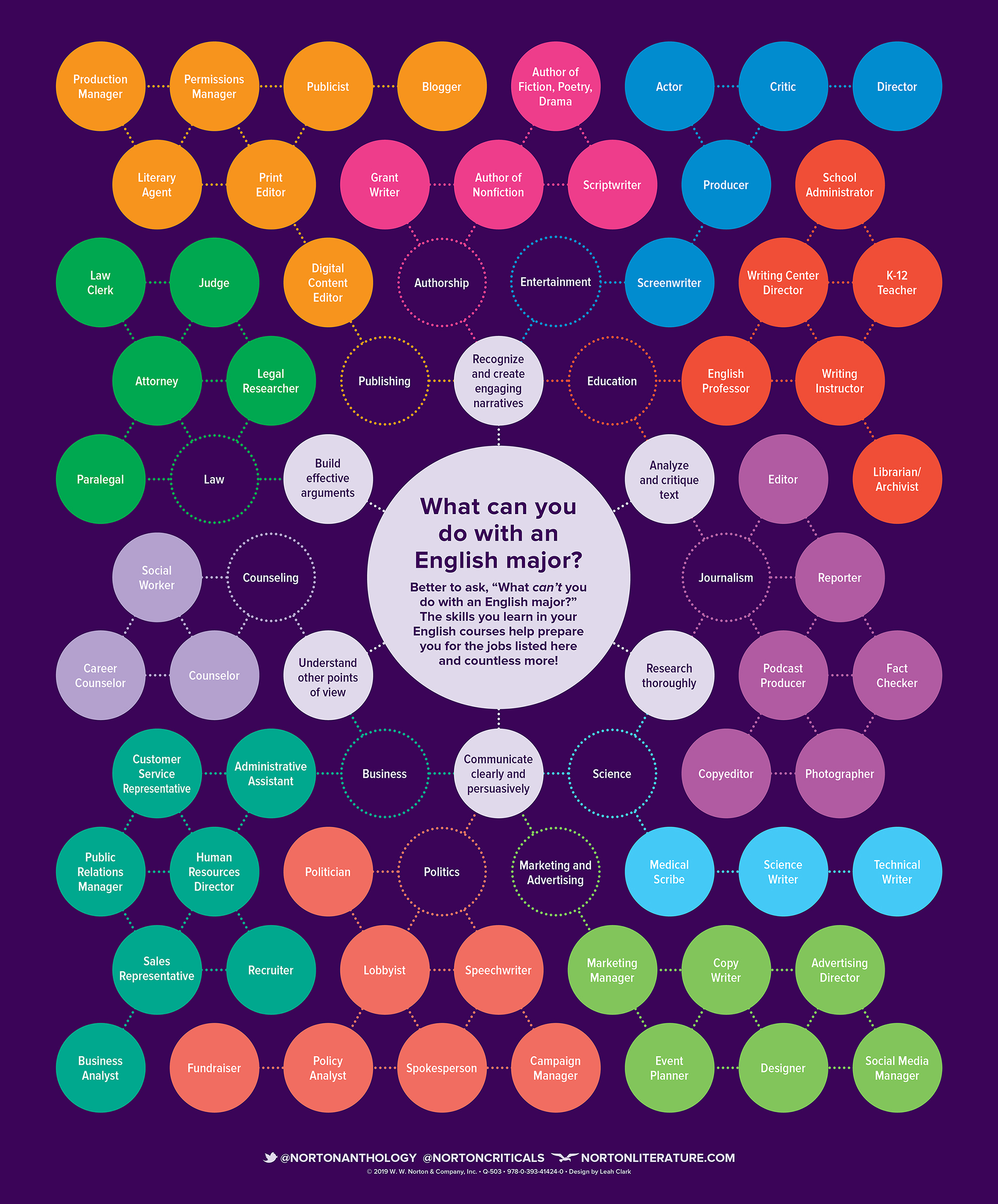Why Study English?
English majors and minors read literary masterpieces and craft their own creative works. They study the structure of language and the history of rhetoric. And they learn how to teach.
They also develop skills that employers demand most.
- Written communication skills were among the top attributes employers seek on a candidate’s resume, according to the National Association of Colleges and Employers (NACE) 2024 job outlook report.
- Oral communication, critical thinking, and written communication were among the top skills that employers described as “very important” in identifying strong job candidates, according to the Association of American Colleges and Universities 2023 survey.
WMU English majors have a strong record of post-graduation success.
- 94% of English majors who responded to the 2023-24 WMU Career Activities Report were actively engaged in post-graduation endeavors, primarily full-time employment and continuing education.
- 86% of English majors said their education and experiences at WMU "prepared me for my profession."
For more on the values of majoring in English...
- “The World’s Top Economist Just Made the Case for Why We Still Need English Majors” by Heather Long (The Washington Post)
- “In the Salary Race, Engineers Sprint but English Majors Endure” by David Deming (The New York Times)
- “Studying STEM Isn’t the Career Boost We Think” by Derek Newton (Forbes)
- “We Don’t Need More STEM Majors. We Need More STEM Majors with Liberal Arts Training” by Loretta Jackson Hayes (The Washington Post)
- Humanities Research is Groundbreaking, Life-Changing. . . and Ignored” by Gretchen Busl (The Guardian)
- “Why Storytelling Will Be the Biggest Business Skill of the Next 5 Years” by Shane Snow (HubSpot Blogs)
- “The Humanities Are in Crisis: Students Are Abandoning Humanities Majors, Turning to Degrees They Think Yield Far Better Job Prospects. But They’re Wrong” by Benjamin Schmidt (The Atlantic)
What Can I Do with an English Major?


